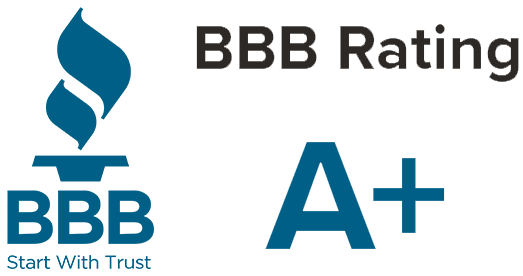Beneficial Ownership Information (BOI) Reporting: What Every Business Needs to Know
By TED ROSE, ROSE FINANCIAL SOLUTIONS
Updated: The Treasury Department announced March 2 that it will no longer enforce the Corporate Transparency Act or the associated beneficial ownership information reporting requirements. While no immediate filing obligations are required, ROSE recommends businesses consider filing proactively in anticipation of future approval and deadlines. If you have any compliance questions, please
contact us.

Starting January 1, 2024, a pivotal new regulation has come into effect in the United States under the Corporate Transparency Act (CTA). This legislation mandates that most businesses report their Beneficial Ownership Information (BOI) to the Financial Crimes Enforcement Network (FinCEN), marking a significant shift in how business ownership is documented and tracked. This article will provide a detailed overview of the new BOI reporting requirements, their importance, and how businesses can stay compliant.
Overview of BOI Reporting Requirements
The BOI reporting mandate stems from the Corporate Transparency Act (CTA), which is part of the broader effort by the U.S. government to enhance corporate transparency and combat financial crimes. The Financial Crimes Enforcement Network (FinCEN) is the agency responsible for overseeing this new requirement and ensuring that businesses comply with it.
The primary goal of BOI reporting is to create a centralized registry of individuals who have substantial control or ownership stakes in businesses. This registry will help law enforcement agencies identify and combat illegal activities such as money laundering, tax evasion, and fraud. Transparency in corporate ownership is essential to prevent bad actors from using anonymous or shell companies for illicit purposes.
Why BOI Reporting Matters
BOI reporting is not just about following regulations—it's about protecting the integrity and reputation of your business. By complying with these new requirements, businesses can avoid hefty penalties and ensure they operate lawfully. Failing to comply can lead to significant fines and criminal penalties, which could severely damage a company’s financial standing and public reputation.
What is BOI Reporting?
BOI reporting requires businesses to disclose detailed information about individuals who either own or control a significant portion of the entity. Specifically, companies must report individuals who:
• Have substantial control over the business, or
• Own at least 25% of the entity, either directly or indirectly.
The central purpose of this reporting requirement is to create a database that allows law enforcement and regulatory bodies to track the real owners of businesses. This prevents individuals from hiding behind anonymous corporate structures to engage in illegal activities.
FinCEN's Role in BOI Reporting
FinCEN is responsible for collecting, maintaining, and protecting the BOI registry. The information gathered through this reporting will not be publicly accessible but will be made available to law enforcement agencies and other authorized entities. FinCEN will also play a critical role in ensuring that businesses comply with these new regulations. Non-compliance will result in enforcement actions, including both civil and criminal penalties.
Who Must Report BOI?
The BOI reporting requirement applies to a broad range of entities, including both domestic and foreign companies operating in the United States. Specifically, the following businesses are subject to BOI reporting:
•
Domestic Reporting Companies: These include corporations, limited liability companies (LLCs), and other entities created by filing with a U.S. state or tribal authority.
• Foreign Reporting Companies: Entities formed under foreign laws but registered to do business in the United States must also comply with the reporting requirement.
However, there are some exemptions. Certain large operating companies and tax-exempt nonprofits are exempt from BOI reporting if they meet specific criteria. For example, large operating companies are exempt if they have more than 20 full-time employees, maintain a physical office presence in the U.S., and report over $5 million in gross receipts or sales on their prior year federal income tax return.
Information Required for BOI Reporting?
To comply with BOI reporting, businesses must submit specific information about their beneficial owners, including:
- The individual's full legal name,
- Date of birth,
- Current residential address,
- A unique identifying number (such as a passport number or driver's license number), and
- An image of the identification document to verify the information.
This comprehensive data collection ensures that FinCEN has accurate and verified information about individuals who own or control U.S. businesses.
Get started with ROSE®
Looking for a simpler way to manage your finance, accounting, and tax needs?
Experience the difference that our expert professionals and leading-technology can make.
Key Deadlines for BOI Reporting
Businesses need to be aware of the following deadlines to avoid penalties:
- For existing companies (incorporated before January 1, 2025): They must file their BOI information with FinCEN by January 1, 2025.
- For newly formed entities (incorporated on or after January 1, 2024): They must file their BOI information within 90 days of their formation.
Due to the complexities involved in BOI reporting, it is highly recommended that businesses submit their reports well ahead of the official deadlines to avoid any last-minute complications or potential delays. To ensure a smooth process, Rose Financial Solutions suggests completing filings in October or November, providing ample time to address any issues that may arise and guaranteeing timely compliance.
Penalties for Non-Compliance
The consequences of failing to comply with BOI reporting requirements can be severe. Businesses that do not submit their BOI information on time may face:
- Civil penalties of up to $500 per day for each day the violation continues, and
- Criminal penalties that could include fines up to $10,000 and/or imprisonment for up to two years.
To avoid these penalties, timely and accurate filing of BOI information is crucial.

Why Opt-In with ROSE for BOI Filing?
Navigating the BOI reporting process can be complex, especially for businesses unfamiliar with these new requirements. This is where Rose Financial Solutions can assist. ROSE offers a comprehensive BOI filing service that simplifies the entire process. Their team will handle everything from collecting and verifying the required documentation to submitting accurate filings with FinCEN on your behalf.
By partnering with ROSE, businesses can ensure they stay compliant with federal regulations and avoid costly penalties. With personalized support and a focus on security, ROSE ensures that your BOI filings are accurate, timely, and confidential.
BOI reporting is a critical new requirement for businesses in the U.S., designed to enhance transparency and combat illicit activities. Compliance is not only a legal obligation but also a way to protect your business from severe penalties and legal consequences. If you need assistance with BOI filing, reach out to Rose Financial Solutions today and ensure your business remains compliant with these important federal regulations.

Ted Rose
In 1994 Ted Rose founded Rose Financial Solutions (ROSE), the Premier U.S. Based Finance and Accounting Outsourcing Firm. In 2010, the Blackbook of Outsourcing named ROSE the #1 FAO firm in the world based on client satisfaction. As the president and CEO of ROSE, he provides executives with financial clarity. Ted has also acted as the CFO for a number of growth companies and assisted with various rounds of financing and M&A transactions.
Share this article:
Visit Us On:




